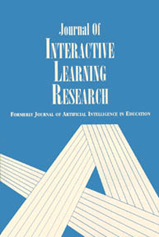Supporting Problem Solving Performance through the Construction of Knowledge Maps
The purpose of this article is to provide five empirically-derived guidelines for knowledge map construction tools that
facilitate problem solving. First, the combinational representation principle proposes that conceptual and corresponding
procedural knowledge should be represented together (rather than separately) within the knowledge map. Second, the con-
textual enhancement principle proposes that the learner should provide information regarding the context of the problem
within the knowledge map. Third, the spatial flexibility principle proposes that the space where learners represent concepts
should be flexible and not artificially constrained. Fourth, the property association principle proposes that the magnitude of association between concept and associated processes should be classified by the learner within the knowledge map. Fifth, the multiple representation principle proposes that the knowledge map construction tool should have the capacity to represent concepts through multiple modalities. The article presents a prototype of a new knowledge map construction tool that incorporates each of these principles.

